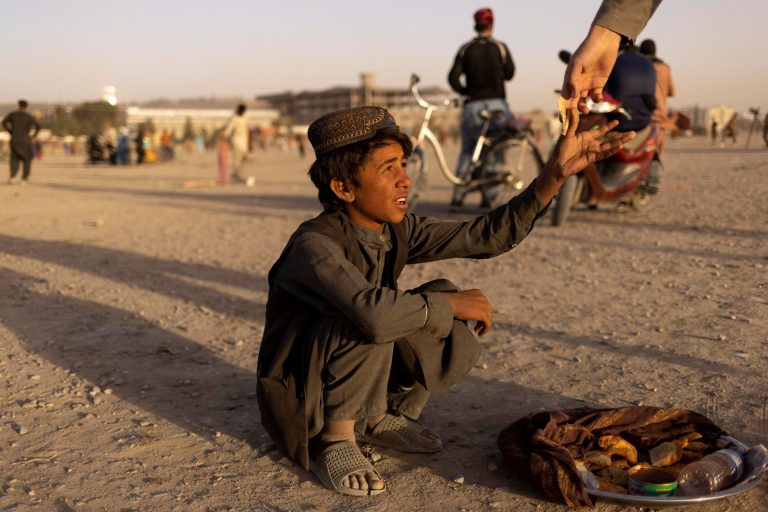Kabul, Afghanistan – The United Nations World Food Programme (WFP) and Food and Agriculture Organization (FAO) warned dozens of countries, including Afghanistan, of “looming widespread food crisis”, as the country continue to struggle with ongoing political instability.
This alert came weeks after WFP said that record levels of hunger persist in Afghanistan, where poverty is expected to worsen from June to September 2022.
“The ‘Hunger Hotspots – FAO-WFP early warnings on acute food insecurity’ report issued today calls for urgent humanitarian action in 20 ‘hunger hotspots’ where acute hunger is expected to worsen from June-September 2022 – to save lives and livelihoods, and prevent famine,” said WFP in a report.
The UN agency earlier said almost half of Afghanistan’s population is facing acute hunger and prolonged drought and a deep economic crisis that will threaten the livelihoods of millions of people across Afghanistan.
According to the May 2022 Hunger Hotspots report, Ethiopia, Nigeria, South Sudan, and Yemen remain at ‘highest alert’ as hotspots with catastrophic conditions, as ANI reported. Afghanistan and Somalia are new entries to this worrisome class since the previous hotspots report in January 2022.
“We are deeply concerned about the combined impacts of overlapping crises jeopardizing people’s ability to produce and access foods, pushing millions more into extreme levels of acute food insecurity,” said FAO Director-General QU Dongyu.
“We are in a race against time to help farmers in the most affected countries, including by rapidly increasing potential food production and boosting their resilience in the face of challenges”.
“We’re facing a perfect storm that is not just going to hurt the poorest of the poor – it’s also going to overwhelm millions of families who until now have just about kept their heads above water,” he warned.
According to the report, frequent and recurring climate shocks, including conflicts, continue to drive acute hunger, which drive population displacement and push millions to the brink in countries across the world.
What We Know About Afghanistan Economy Since the Takeover
The ongoing political crisis since the takeover last August has “hit hard” private sectors in Afghanistan, where businesses were halted and put to uncertainty, according to a latest survey conducted by the World Bank.
Due to shortage in sells, private companies have laid off more than a half of their employees on average, a rising concern on unemployment rate in the country.
“The majority of surveyed businesses reported a drastic decline in consumer demand for their products and services and have been forced to scale back operations, reduce investments, and lay off employees,” the report said.
According to the survey, small enterprises have been hit hardest with about 38 percent of them seizing operation, comparing to a 25 percent among medium and 35 percent among large businesses in the country.
The finding shows Afghan domestic inputs have become more expensive and yet difficult to obtain due to supplier closure and supply chain disruptions, which all lead to price inflation since the beginning of political uncertainty.
